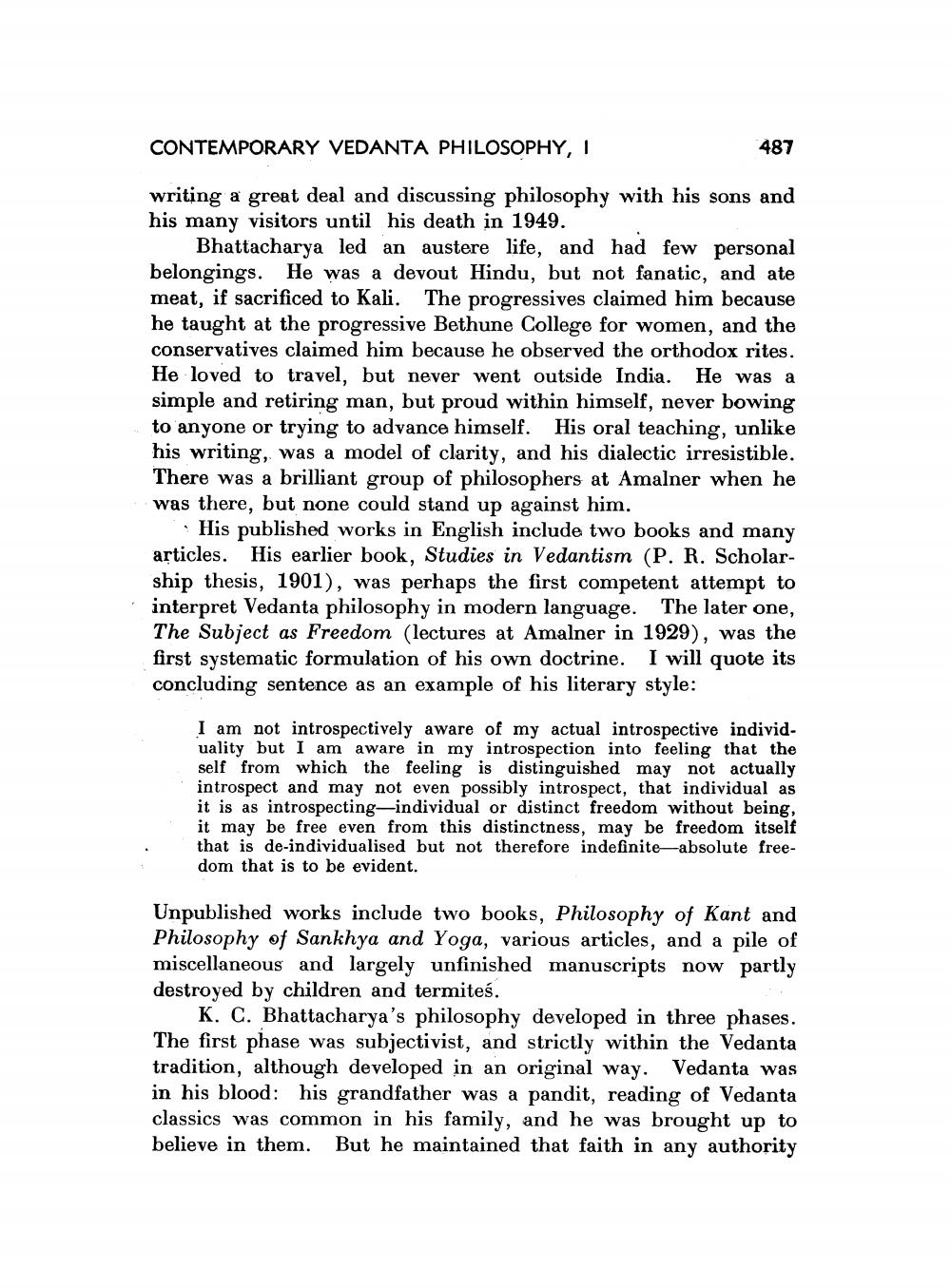________________
CONTEMPORARY VEDANTA PHILOSOPHY, I
487
writing a great deal and discussing philosophy with his sons and his many visitors until his death in 1949.
Bhattacharya led an austere life, and had few personal belongings. He was a devout Hindu, but not fanatic, and ate meat, if sacrificed to Kali. The progressives claimed him because he taught at the progressive Bethune College for women, and the conservatives claimed him because he observed the orthodox rites. He loved to travel, but never went outside India. He was a simple and retiring man, but proud within himself, never bowing to anyone or trying to advance himself. His oral teaching, unlike his writing, was a model of clarity, and his dialectic irresistible. There was a brilliant group of philosophers at Amalner when he was there, but none could stand up against him.
.. His published works in English include two books and many articles. His earlier book, Studies in Vedantism (P. R. Scholarship thesis, 1901), was perhaps the first competent attempt to interpret Vedanta philosophy in modern language. The later one, The Subject as Freedom (lectures at Amalner in 1929), was the first systematic formulation of his own doctrine. I will quote its concluding sentence as an example of his literary style:
I am not introspectively aware of my actual introspective individuality but I am aware in my introspection into feeling that the self from which the feeling is distinguished may not actually introspect and may not even possibly introspect, that individual as it is as introspecting-individual or distinct freedom without being, it may be free even from this distinctness, may be freedom itself that is de-individualised but not therefore indefinite absolute freedom that is to be evident.
Unpublished works include two books, Philosophy of Kant and Philosophy of Sankhya and Yoga, various articles, and a pile of miscellaneous and largely unfinished manuscripts now partly destroyed by children and termites.
K. C. Bhattacharya's philosophy developed in three phases. The first phase was subjectivist, and strictly within the Vedanta tradition, although developed in an original way. Vedanta was in his blood: his grandfather was a pandit, reading of Vedanta classics was common in his family, and he was brought up to believe in them. But he maintained that faith in any authority




